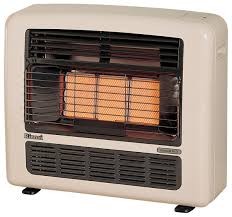 April is the time of year when we start to think about unpacking the winter woolies and look at servicing our heaters. When it comes to heating the most common devices found in homes are electrical bar heaters, reverse cycle air conditioning, wood heaters, and of course good reliable gas heaters. In the Toowoomba Region it’s common for property owners to have heating facilities in their rental homes and units for tenants to use. Whilst property owners often supply these heating devices for additional comfort and lifestyle, it’s important to know that legislation and regulations exist around the use and supply of these devices. So, in this feature we’re going to explore some regulations around gas heating to help landlords understand their obligations.
April is the time of year when we start to think about unpacking the winter woolies and look at servicing our heaters. When it comes to heating the most common devices found in homes are electrical bar heaters, reverse cycle air conditioning, wood heaters, and of course good reliable gas heaters. In the Toowoomba Region it’s common for property owners to have heating facilities in their rental homes and units for tenants to use. Whilst property owners often supply these heating devices for additional comfort and lifestyle, it’s important to know that legislation and regulations exist around the use and supply of these devices. So, in this feature we’re going to explore some regulations around gas heating to help landlords understand their obligations.
1. Australian Standards – Australian law provides that all gas systems must comply with Australian Standards AS5601 and AS1596 and any relevant statutory regulations that
may exist in each state or territory.
AS5601 outlines minimum standards relating to the design, installation, alternation or certifying of gas systems in Queensland, whilst the associated AS1596 covers the storage and handling of LP Gas. Each Standard has a specific focus and it’s important
that property owners are aware of the minimum standards when installing new systems, changing existing systems, or simply maintaining an existing facility.
If you’d like detailed information we recommend checking out info published by Elgas at https://www.elgas.com.au/blog/460-indoor-storage-of-lpg-gas-bottles and the Queensland Government at: https://www.dnrm.qld.gov.au/__data/assets/pdf_file/0011/238637/standards-gas-installations-general.pdf
The Elgas site, in particular, provides some good clear information on the storage and location etc of gas bottles in homes and other premises.
2. Residential Tenancies Act 2008 (Qld) – It is a statutory requirement for property owners to ensure their rental properties are maintained in good repair, and that includes any appliances provided for the use of tenants by the owner.
As a broad general summary, property owners must ensure the following:
- tenants are provided with a copy of the manufacturers instructions relating to any appliances
- all appliances, pipework etc should be installed according to manufacturer’s specifications
- pipes must be correctly sealed when appliances are removed
- all safety checks and work undertaken should be recorded and certificates of compliance obtained
- all appliances must be safe for use before letting a property
Ray White Property Management strongly recommends that all gas appliances including heaters be properly and regularly maintained by a licenced gas fitter to prevent leakages and potential danger to people.
3. Real Danger!
Irregular or poor maintenance of gas appliances and systems can create potentially dangerous risks for people and property. It is not an exaggeration that death, injury, or substantial property damage can result from gas leaks or explosions.
Purchasing, building, or renovating an investment property with gas facilities brings with it a range of legal obligations that every property owner needs to understand. Ray White Property Management recommends obtaining professional legal advice and/or licenced trade advice about the technical requirements, laws, or regulations relating to gas installations before making any decisions on the basis of this feature. There are also a range of general online resources available to property owners from government, industry bodies and reputable suppliers.
NB: This publication and others displayed on the web and social media covers real estate, property market, finance and legal related issues in a general way. It is intended for general information purposes only and should not be regarded as professional financial or legal advice. Ray White Property Management recommends obtaining professional legal and/or finance advice before taking any action on the basis of the information presented in this publication.
*Written and Published by www.presentprofessionally.com.au
